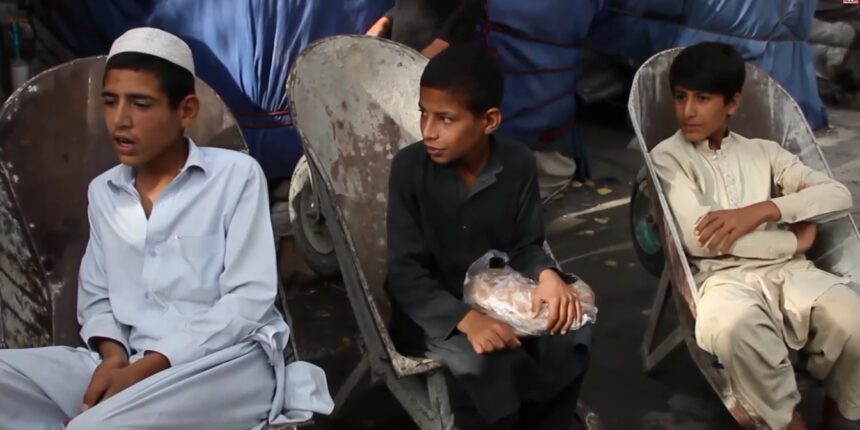RASC News Agency: Reports from Nimroz province in southwestern Afghanistan indicate that 21,000 unaccompanied children crossed the border from neighboring countries in the past year. A reliable source in Nimroz province, confirming this news to the RASC news agency on Friday, April 12th, stated that these unaccompanied children hail from western and eastern provinces of Afghanistan, having been detained and subsequently returned to Afghanistan by neighboring countries on various occasions. The source adds that these unaccompanied children resorted to illegal means to find work in neighboring countries, which proved unsuccessful for them. According to the source, some of these children are currently succumbing to drug addiction in various provinces of Afghanistan and lead unhealthy lives.
Meanwhile, another source in Nimroz province informs RASC that children expelled from neighboring countries encountered a multitude of problems there. The source states that had some of these youths, teenagers, and children refrained from engaging in illegal activities in neighboring countries, their current situation in Afghanistan would not have been as dire, where they now lead destitute lives.
The source emphasizes that some of the orphaned children in Afghanistan are unemployed and spend their youth in despair and misery, devoid of hope for a bright future. According to the source, if job opportunities were provided for youths in Afghanistan, no Afghanistani would migrate to foreign lands, sacrificing their pride and dignity.
Therefore, some residents of Nimroz province in the southwestern region of the country confirm that the number of unaccompanied children has increased compared to the past. Mohammad Rahmani, a local resident of Nimroz province, tells RASC that most of the unaccompanied children expelled from neighboring countries either reunite with their families or face two major problems: drug addiction and vagrancy. Rahmani further adds that children addicted to drugs in neighboring countries have worse health conditions in Afghanistan, necessitating urgent attention from international organizations.
Furthermore, Rafi Rahmati, an expert on western Afghanistan affairs, tells RASC that one reason unaccompanied children become refugees and wanderers in neighboring countries is due to the incompetence of the ruling group in Afghanistan, which has thus far failed to provide a suitable environment to address this issue for this segment of society. He adds that the Taliban, who consider themselves superior to the republican system, must create an inclusive work environment for all segments of society, especially unaccompanied children, to prevent such a situation from recurring.
The Taliban have not commented on this matter. It is worth mentioning that thousands of Afghanistanis are forcibly expelled from neighboring countries daily, with nearly half of them being unaccompanied children.






